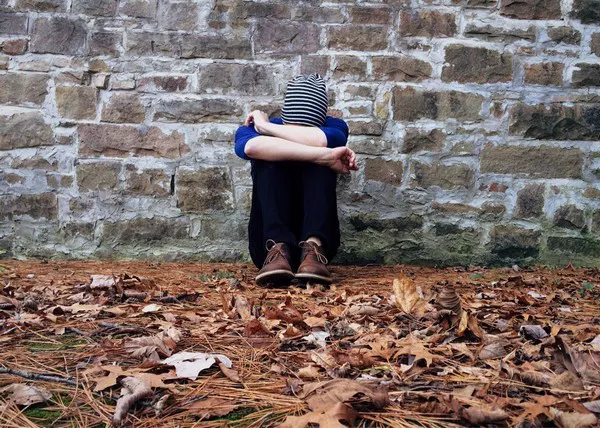The UK government has announced that nearly one million young people will benefit from mental health support in schools this year, marking a significant step forward in fulfilling its nationwide pledge to address the ongoing challenges faced by children and young people.
Under the government’s plan, by the 2029/30 academic year, every student will have access to mental health support in schools. This transformative initiative aims to improve life opportunities for children while tackling root causes of low attendance and poor behavior.
The mental health support teams, staffed by specialists, provide a range of interventions designed to identify and address issues early. These include group sessions, one-on-one meetings to build resilience, and tailored support for managing anxiety. The initiative not only addresses the youth mental health crisis but also contributes to improving school attendance rates.
These teams work closely with school and college staff as well as the National Health Service (NHS) to offer expert guidance, easing the pressure on school personnel and enabling them to help young people access appropriate support to stay in education. Recent research highlights a direct link between the severity of children’s mental health problems and their likelihood of missing school.
This new investment will enable mental health support teams to reach six out of ten students by March 2026. Deployment will be prioritized according to local needs identified by the NHS, initially focusing on the most vulnerable children.
Additionally, the government has launched a new program to provide enhanced support to 500 schools facing significant attendance and behavior challenges. Attendance and behavior hubs will be established around 90 schools that have previously improved standards, targeting the highest-need schools and extending wider support to 4,500 others nationwide.
These hubs will work alongside newly appointed attendance and behavior ambassadors who will serve as liaisons between schools and government, identifying challenges and collaborating on solutions.
This initiative builds on government progress in improving school attendance, which has already increased by over three million days compared to last year.
Education Secretary Rt Hon Bridget Phillipson said:
“We inherited a challenging system, and breaking the cycle of poor mental health, low attendance, and behavioral issues among children and young people is one of the most urgent tasks facing our schools — and this government is already turning that around. Expanding mental health support for young people is one of the biggest steps we can take to improve life chances and ensure every student gets the most from school, receiving an excellent education.”
She added that alongside new support for struggling schools, free breakfast clubs for millions of children, and wider efforts to boost attendance, the government will continue to use every available means to break the damaging link between background and success and deliver on its transformative plan.
Health and Social Care Secretary Rt Hon Wes Streeting stated:
“Mental health problems in youth can disrupt education, limit potential, and have lifelong impacts. This is a serious issue that must change. That’s why the government is providing crucial services to schools so they can intervene early, support students, and prevent issues from worsening. With an additional £680 million investment this year, we’re transforming children’s mental health services — hiring more staff, expanding talking therapies, and reducing waiting lists through our transformation program — giving children the best start in life.”
Pepe Di’Iasio, Secretary-General of the Association of School and College Leaders, commented:
“The mental health crisis among children and young people has worsened in recent years, with many waiting too long to get the help they need. It’s reassuring that the government recognizes this issue and its impact on schools and will provide support to more students next year. This is a welcome step forward that will ensure professional support is available to all children and young people when they need it.”
Low attendance directly affects academic achievement, future income, and life opportunities. By age 28, secondary school students who frequently miss school earn £10,000 less on average than those with high attendance.
Ongoing issues with absenteeism, suspensions, and expulsions reveal systemic challenges inherited by the current government. Despite some positive data trends, the government is committed to moving faster and further, combining mental health, wellbeing, attendance, and behavior initiatives to drive change for young people.
Currently, mental health support teams cover approximately 70% of secondary school students. These teams provide early intervention for children with mild to moderate mental health issues, helping them overcome challenges in calm and supportive learning environments. They also offer timely advice to school staff on whole-school mental health strategies and collaborate with external professional services such as the NHS to ensure young people get the right support to stay in education.
Gary Lloyd, Principal of Liverpool’s St Nicholas College, who has worked with the mental health support team for a year, said:
“Having a trained, visible, and trusted professional working with the college has made a significant difference in supporting staff and students. They underpin our broader inclusion strategy — often identifying young people earlier and providing quicker support — which positively impacts attendance and overall wellbeing.”
More broadly, the government is recruiting an additional 8,500 mental health workers for children’s and adult services to reduce delays and deliver faster treatment. This effort will be supported by 6,500 more teachers to ensure every classroom has excellent educators capable of supporting children inside and outside school.
The government is also taking wider actions through innovative RISE teams to raise school standards nationwide, working with attendance and behavior hubs to improve attendance in struggling schools, helping every child achieve and thrive.
Related Topics
































